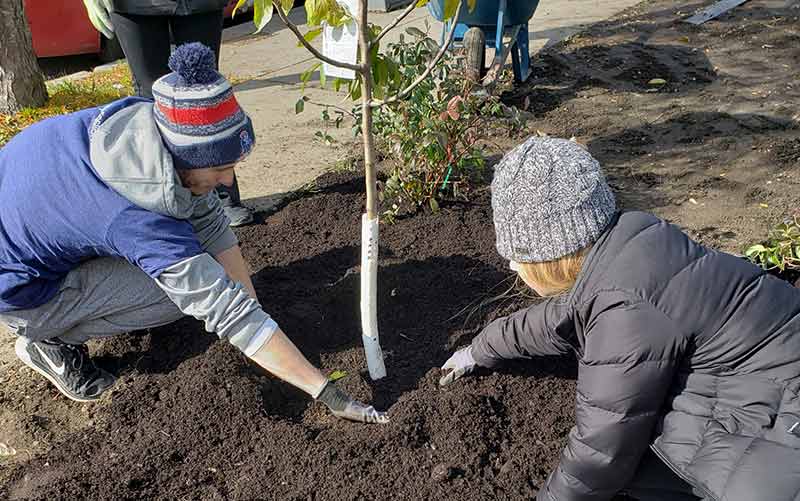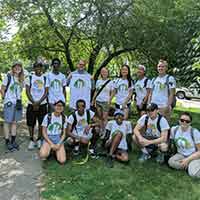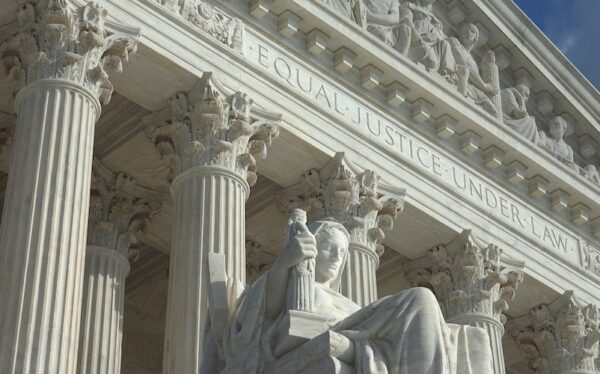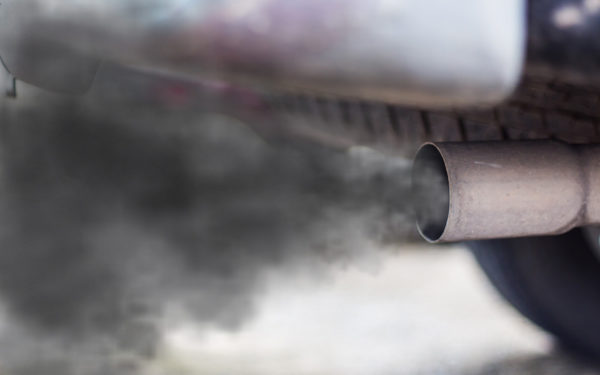
Speak for the Trees is dedicated to improving the size and health of the urban forest in Boston, with a focus on under-served and under-canopied neighborhoods. Photo courtesy of Speak for the Trees
When CLF found Boston’s school bus contractor violated clean air laws, we sued to make them stop. Transdev Services, Inc., was allowing its buses to idle more than the state’s legal limit of five minutes – forcing students and community members to breathe in toxic tailpipe pollution. Thanks to our efforts, Transdev is taking responsibility – resulting in cleaner, healthier air for our children and neighbors. The company will also provide funding for three local nonprofits in the communities where its pollution caused the most harm. Here, I share the story of one of these organizations.
Speak for the Trees
When I first heard of the Boston-based, Speak for the Trees, I couldn’t help but smile at The Lorax reference. If you know the story, you know that a central part of the narrative is that trees are more than just a plant – they are essential for a healthy planet. This idea lives through the organization’s mission, as I came to understand in a sit-down with David Meshoulam, Executive Director & Co-Founder.
David and his organization focus on education, empowerment, and advocacy. Yes, they host tree giveaways and tree planting events, but, as David explained, “it’s more than just a tree. It’s a way of adapting to this new climate that we’re facing. It’s a way of making sure that Boston is resilient for the future.“

The organization has recently seen success in its community tree inventory program, which allows residents to be actively involved in keeping a neighborhood tree count and understanding what these resources mean to their community. This past summer was also the second year, and first virtual version, of its popular Teen Urban Tree Corps program, which helps educate local teens to become strong community and civic leaders in the area of environmental justice. With a focus on tree equity, Speak for the Trees hopes to ensure that people in every part of the city have access to trees and the benefits they provide.
When asked why his organization’s work is so critical, David remarked on the community’s importance. “At the end of the day, the trees belong to the community. And we’re committed to making sure that some of the harm that was done through things like air pollution is mitigated by increasing the canopy and improving the health for the residents who live there.”
They also fight to make sure communities don’t lose the trees they already have. The City of Boston recently proposed a redesign of Melnea Cass Boulevard, which, coincidentally, is home to one of Transdev’s bus parking lots. As proposed, the redesign would have leveled more than 100 mature trees – a quarter of the street’s canopy – prompting residents to rise in protest. Speak for the Trees joined the coalition against the plan, helping to rally local support, gathering signatures for a petition, and encouraging people to attend and speak out at public hearings. The City has since paused the project, but the organization remains vigilant in ensuring those changes are what’s best for the community.
The organization’s next step is to increase engagement by learning from the area’s communities. With the Transdev funds, it plans to host listening sessions in lower Roxbury and engage with residents to understand their areas of concern. As a growing organization representing a dynamic living organism, David believes that the future for Speak for the Trees isn’t set in stone. “I think growing the urban forest is a sign of success, making sure that it’s more equitable is a sign of success, but I don’t think there’s ever an end game in that. I think there’s always going to be places where we can continue to push that frontier.”
Add your community’s tree inventory at www.opentreemap.org/Boston.
Read how HEET (the Home Energy Efficiency Team) and Alternatives for Community & Justice (ACE) are using funding from Transdev to benefit their communities.



